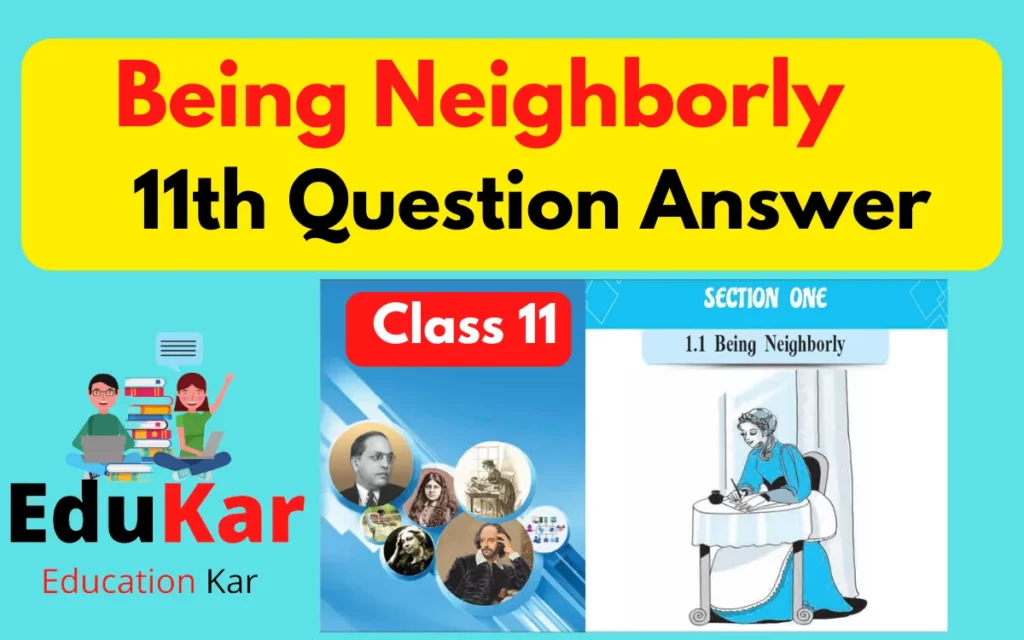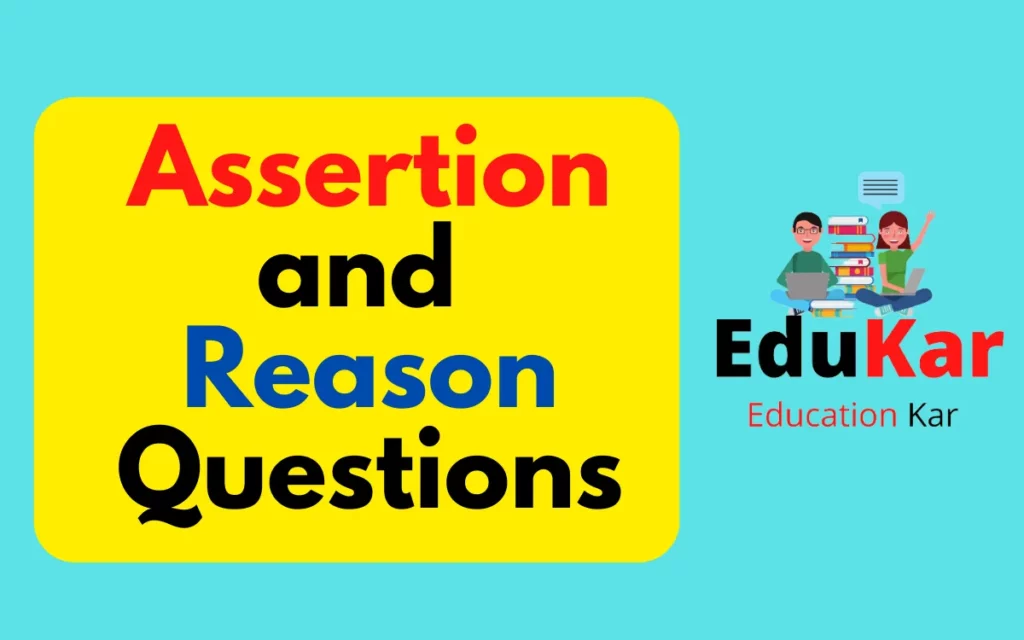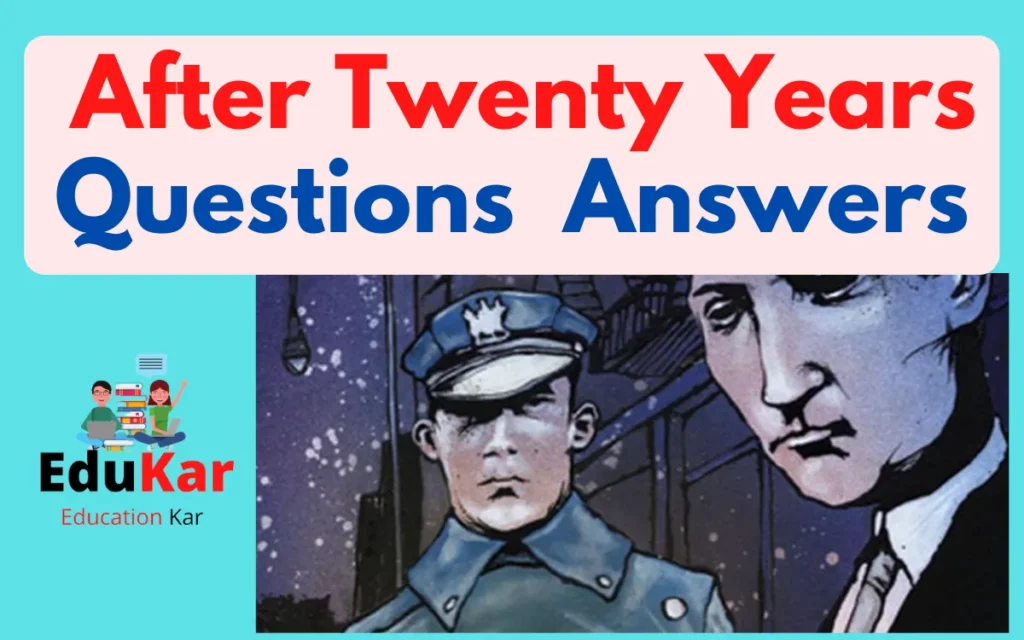Contents
- 1 No Men Are Foreign Summary Class 9
- 2 No Men Are Foreign Class 9 Question Answer
- 3 Q1: “Beneath all uniforms…” What uniforms do you think the poet is speaking about?
- 4 Q2: How does the poet suggest that all people on the earth are the same?
- 5 Q3: In stanza 1, Find five ways in which we are all alike. Pick out the words.
- 6 Q4: How many common feature can you find in Stanaza 2? Pick out the words.
- 7 Q5: “….Whenever we are told to hate our brother…” When do you think this happens? Who tells us? Should we do as we are told at such times? What does the poet say?
- 8 Q6: Read the following stanzas and answer the questions based on them.
| Poem Name | No Men Are Foreign |
| Type | Question Answer |
| Class | 9 |
| Board | NCERT-CBSE |
| Author | James Kirkup |

No Men Are Foreign Summary Class 9
“No Men Are Foreign” is a poem written by James Kirkup. It is a plea for peace and understanding between nations and peoples. The poem encourages readers to see the humanity in all people, regardless of their nationality or ethnicity, and to recognize that all people are united by a common humanity. The poem is written in the form of a conversation between a teacher and a student, in which the teacher explains the importance of treating all people with kindness and respect, regardless of where they come from.
The poem begins with the teacher asking the student to imagine a field of wheat, and to think of the people of the world as the wheat in the field. The teacher explains that all of the wheat is the same, and that it is only the different colors and shapes that make it appear different. The teacher goes on to say that just as the wheat is all the same, all people are the same, and that it is only the different colors and shapes of their skin that make them appear different.
The poem then goes on to describe the many different ways in which people are connected, from the air we breathe and the water we drink, to the food we eat and the clothes we wear. The poem emphasizes that all of these things come from other countries, and that all people are dependent on each other for survival.
The poem also addresses the idea of war and how it is futile and destructive. The teacher describes how soldiers are sent to fight and die in wars, while the people who start the wars stay safe at home. The poem also points out how war creates more problems than solutions and how it creates more hostility between nations instead of resolving them.
The poem concludes with the teacher reminding the student that all people are brothers and sisters, and that all people are part of the same family. The teacher encourages the student to treat all people with kindness and respect, and to remember that “no men are foreign.” The poem is a powerful call to action, urging readers to recognize the humanity in all people and to work towards peace and understanding among nations.
Overall, the poem encourages readers to see the humanity in all people, regardless of their nationality or ethnicity, and to recognize that all people are united by a common humanity. It also encourages to use kindness and understanding towards others and to work for peace, this way creating a world where everyone is treated with equality and respect.
No Men Are Foreign Class 9 Question Answer
Q1: “Beneath all uniforms…” What uniforms do you think the poet is speaking about?
Ans: The poet is probably speaking about dresses that people of different countries wear. Beneath these dresses human body is the same.
Q2: How does the poet suggest that all people on the earth are the same?
Ans: The poet suggests that all people on Earth are the same as all of breath and live in the same war. When we will die. We will be buried under the same earth. All share their air, water & warmth of sun equally to survive. Each one of us prospers at the time of peace & suffers when there is a war. We all are the same way we wake, sleep, hate, love and labour.
Q3: In stanza 1, Find five ways in which we are all alike. Pick out the words.
Ans: Words which suggest the five ways in which we all are like are:
- No men are strange.
- No country is foreign.
- No single body breathes.
- The land our brothers walked upon.
- Earth like this, in which we all shall lie.
Q4: How many common feature can you find in Stanaza 2? Pick out the words.
Ans: There are five features in Stanza 2. These are: the sun, the air, the water, harvest, hands and the labour.
Q5: “….Whenever we are told to hate our brother…” When do you think this happens? Who tells us? Should we do as we are told at such times? What does the poet say?
Ans: Whenever there is a war or any kind of differences between two countries, we are told to hate the citizens of the other country. Some political leaders tell us to do so for their personal gains.
No, we should not do as we are told at such times. Instead, we should understand that war is futile & analyse the situation before jumping to any conclusion. We should not forget the humanity.
The poet says that by hating our brothers(people of another country), we dispossess, betray and condemn ourselves.
Q6: Read the following stanzas and answer the questions based on them.
1) Remember, no men are ___________________ all shall lie.
(i) What is advised to remember about men and countries?
Ans: It is advised to remember that no men are strange and no contries are foreign.
(ii) Where does single body breath?
Ans: Beneath all unifroms, a single body breathes.
(iii) Where do our brothers walk?
Ans: Our brothers walk upon the same Earth.
(iv) What will happen to us all?
Ans: We all shall die and lie in the Earth.
2) They, too, aware____________from our own.
(i) Who are aware of sunand air and water?
Ans: Men living abroad are aware of sun and air and water.
(ii) What do peaceful harvests do?
Ans: Peaceful harvests feed them.
(iii) What are their hands compared with?
Ans: Their hands are compared with our hands.
(iv) What is not different ‘from our own’?
Ans: The labour they do is not different ‘from our own’.
3) Remeber they have ___________and understand.
(i) Are their different from ours?
Ans: No, they are not different from ours. They are like ours.
(ii) What do their and our eyes do?
Ans: The eyes of thiers and ours wake up or sleep.
(iii) How can ‘strength’ be won?
Ans: ‘Strength’ can be won by love.
(iv) Who can recognise and understand and what?
Ans: All can recognise and understandthat in every land there is one common life.
4) Let us remember _________ each other.
(i) What should we remember?
Ans: We should remember that they have eyes like our’s that canwake or sleep like ours.
(ii) When we hate our brothers, whom do we hate?
Ans: When we hate our brothers, we hate ourselves.
(iii) Whom shall we ‘dispossess’ , ‘betray’ and ‘condemn’?
Ans: We shall ‘dispossess’ , ‘betray’ and ‘condemn’ ourselves.
(iv) Who takes arms against each other?
Ans: We take arms against each other.
5) It is human______________contries strange.
(i) Who do we defile?
Ans: We defile the human earth.
(ii) Where is air present?
Ans: Air is present everywhere.
(iii) Who does thea ir belong to?
Ans: Air belongs to us all.
(iv) What is being advised in the concluding line?
Ans: In the concluding line it is advised that we should remember that’no men are foreign, and no countries strange’.


![No Men Are Foreign Summary [CBSE Class 9] By James Falconer Kirkup No Men Are Foreign Summary](https://edukar.in/wp-content/uploads/2022/10/No-Men-Are-Foreign-Summary--1024x536.webp)

![A House Is Not A Home Question Answer [Class 9 English Moments Chapter 8] A House Is Not A Home Question Answer](https://edukar.in/wp-content/uploads/2023/01/A-House-Is-Not-A-Home-Question-Answer-1024x640.webp)
![Packing Class 9 Questions and Answers [Class 9 English Beehive Chapter 7 ] Packing Class 9 Questions and Answers [Class 9 English Beehive Chapter 7 ]](https://edukar.in/wp-content/uploads/2023/01/Packing-Class-9-Questions-and-Answers-1024x640.webp)


![Digital Documentation Class 9 [Questions Answers & MCQ] Digital Documentation Class 9](https://edukar.in/wp-content/uploads/2022/08/Digital-Documentation-Class-9-1024x597.webp)


![Natural Vegetation and Wildlife Class 9 Questions Answers [Class 9 Geography Chapter 5] Natural Vegetation and Wildlife Questions Answers](https://edukar.in/wp-content/uploads/2023/01/Natural-Vegetation-and-Wildlife-Questions-Answers--1024x640.webp)

![Evans Tries An O Level Questions Answers [Class 12 NCERT Solutions] Evans Tries An O Level Questions Answers class 12](https://edukar.in/wp-content/uploads/2023/01/Evans-Tries-An-O-Level-Questions-Answers-class-12-1024x640.webp)
![Asleep in the Valley Questions and Answers 2023 [Class 12-English] Asleep in the Valley Questions and Answers](https://edukar.in/wp-content/uploads/2022/12/Asleep-in-the-Valley-Questions-and-Answers-1024x640.webp)

